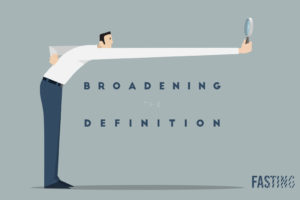 In my study of fasting I came across this thought-provoking article by Catherine Marshall (journalist and author – 1914-1983) concerning a form of fasting that we all should consider. I have taken the liberty of condensing it for a quick read.
In my study of fasting I came across this thought-provoking article by Catherine Marshall (journalist and author – 1914-1983) concerning a form of fasting that we all should consider. I have taken the liberty of condensing it for a quick read.
“The Lord continues to deal with me about my critical spirit, convicting me that I have been wrong to judge any person or situation: ‘Do not judge, or you too will be judged. For in the same way you judge others, you will be judged, and with the measure you use, it will be measured to you.’ (Matthew 7:1-2)
One morning last week He gave me an assignment: for one day I was to go on a “fast” from criticism. I was not to criticize anybody about anything.
Into my mind crowded all the usual objections. ‘But then what happens to value judgments? You Yourself, Lord, spoke of righteous judgment. How could society operate without standards and limits?’
All such resistance was brushed aside. ‘Just obey Me without questioning: an absolute fast on any critical statements for this day.’
As I pondered this assignment, I realized there was an even humorous side to this kind of fast. What did the Lord want to show me?
The experiment
For the first half of the day, I simply felt a void, almost as if I had been wiped out as a person. This was especially true at lunch….Several topics came up about which I had definite opinions. I listened to the others and kept silent…Bemused, I notices that my comments were not missed….But still I didn’t see what this fast on criticism was accomplishing until mid-afternoon…
Ideas began to flow in a way I had not experienced in years. Now it was apparent what the Lord wanted me to see. My critical nature had not corrected a single one of the multitudinous things I found fault with. What it had done was stifle my own creativity – in prayer, in relationships, perhaps even in writing – ideas that He wanted to give me.
Last Sunday night in a Bible study group I told of my Day’s Fast experiment. The response was startling. Many admitted that criticalness was a chief problem in their offices, or in their marriages, or with their teenage children.
The result
My own character flaw is not going to be corrected overnight. But in thinking this problem through the past few days, I find the most solid scriptural basis possible for dealing with it (the Greek word translated “judge” in King James, becomes “criticize” in Moffatt.) All through the Sermon o the Mount (Matthew 5, 6, and 7), Jesus sets Himself squarely against our seeing other people and life situations through this negative lens.
What He is showing me so far can be summed up as follows:
- A critical spirit focuses us on ourselves and makes us unhappy. We lose perspective and humor.
- A critical spirit blocks the positive creative thoughts God longs to give us.
- A critical spirit can prevent good relationships between individuals and often produces retaliatory criticalness.
- Criticalness blocks the work of the Spirit of God: love, good will, mercy.
- Whenever we see something genuinely wrong in another person’s behavior, rather than criticize him or her directly, or – far worse – gripe about him behind his back, we should ask the Spirit of God to do the correction needed.
Convicted of the true destructiveness of a critical mind-set, on my knees I am repeating this prayer: ‘Lord, I repent of this sin of judgement. I am deeply sorry for having committed so gross an offense against You and against myself so continually. I claim Your promise of forgiveness and seek a new beginning.’”
Does Catherine Marshall’s experience enlarge your idea about fasting? What is God calling you to consider abstaining from?
“Refuse to be a critic full of bias toward others, and judgment…” Matthew 7:1 (TPT)
written by Major Lauren Hodgson, Spiritual Life Development Department, USA East




